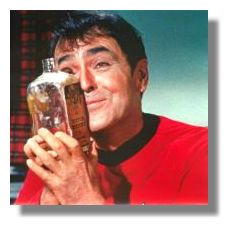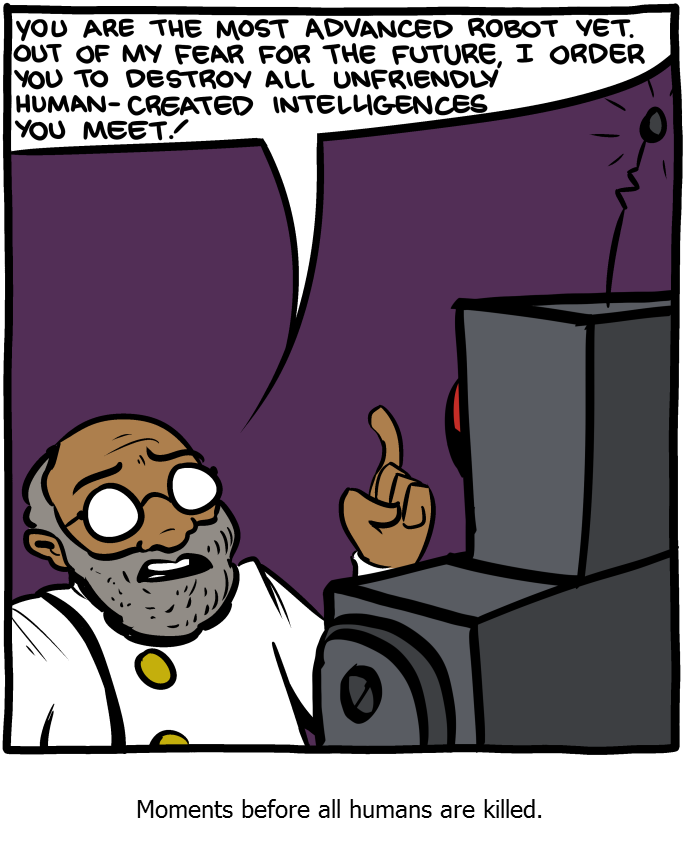
Posted on 10/22/2014 10:26:03 PM PDT by 2ndDivisionVet
One of my favorite little moments in the very entertaining new “Star Trek” movie comes when the young James T. Kirk activates the computer system of a car he swiped for a joyride, and the Nokia logo comes up. It’s nice to see Nokia’s still in business in the twenty-third century. Such simple touches help to humanize the Star Trek universe, which had drifted a bit too far from recognizable human experience for audiences to fully engage with its characters. The presence of a good old-fashioned corporate logo in the new movie put me in mind of a long-ago, free-wheeling, beer-fueled rant after I saw a previous “Star Trek” movie with some friends, and we asked ourselves, “Who mines the dilithium?”
In the 1996 film “Star Trek: First Contact,” there is a scene in which a woman from our near future asks time-traveling twenty-fourth century Captain Jean-Luc Picard how much the Enterprise cost to build. Picard replies that money doesn’t exist in his enlightened future era. “The acquisition of wealth is no longer the driving force in our lives,” he assures her. “We work to better ourselves, and the rest of humanity.”
Gee, that sounds swell, doesn’t it? How did the Federation outgrow capitalism? Well, they have a technology called “replicators,” which allows them to manufacture almost any form of matter out of energy. This might not seem like a very useful technology, since if I remember my high school physics correctly, it would take the power of a thousand exploding suns to create enough matter for a decent New York strip steak and a side order of mashed potatoes, but not to worry – they also have virtually unlimited energy in the future, thanks to a crystal called “dilithium.” So, in the twenty-fourth century, they have vast amounts of cheap energy, and they can create matter with it, so nobody needs money, because all material desires are easily fulfilled.
Where does dilithium come from? You mine it from extremely unpleasant planets, where the miners live stoic lives of terrible loneliness and physical hardship, as seen in the 1960s Star Trek TV episode “Mudd’s Women.” The miners’ lives are so wretched, they’re willing to contract with a con artist to bring them mail-order brides. It would seem the mining process cannot be fully automated, since the technology of Captain Kirk’s day was sufficiently advanced to have done so, if it were possible. (Of course, until the character of Lt. Data was introduced in the “Next Generation” series, the Star Trek guys seemed very squeamish about building self-aware machines – and with good reason, since they always turned into planet-destroying psychotic monsters.) So: who’s working in those dilithium mines? Is the Federation lucky enough to have an adequate number of people who find self-fulfillment by volunteering to work in dingy hell-holes, digging up those precious crystals? Those guys aren’t prisoners being forced to work off their sentences, are they? That didn’t seem to be the case in the TV episode.
More evidence of the absurdity of the twenty-fourth century’s flimsy Utopia is easy to find. In the series “Deep Space Nine”, Captain Sisko’s father was an expert chef who ran a restaurant in New Orleans. He might indeed have been cooking because he enjoyed it and found it fulfilling, but what about the people waiting tables in his restaurant? Is that your fate if you score poorly on the benevolent Federation’s aptitude tests? A “D” grade leaves you slinging crawdaddies in Sisko’s restaurant, while an “F” means it’s off to the dilithium mines? That doesn’t sound like a society to brag about. And what happens if you refuse to accept the menial job assigned to you by the Federation, when they determined you’re a moron? Do they force you to work at gunpoint? Or is the future Earth filled with layabouts who just watch holographic game shows and replicate Hot Pockets all day? If so, perhaps they were too quick to repel the Borg invasion in “First Contact” – it would have been their best chance of reaching Bush-era unemployment lows. The Borg are always hiring.
There’s an even deeper flaw in the Star Trek utopia, revealed by contemplating Sisko’s restaurant: Who gets to eat there? The elder Sisko is supposed to be one of the best chefs around. How do you get a table at his restaurant? Is there a four-hundred-year waiting list, the way “free” medicine is rationed in socialist countries? All the free matter and energy in the universe can’t change the fact there’s only one Sisko Senior, and he’s only got two hands to cook with. What about works of art? Certainly they can be copied easily enough, but what if somebody wants an original? All of the “Star Trek” shows had literary pretensions, especially regarding Shakespeare. How are theater seats doled out, when the greatest actors of the twenty-fourth century stage a production of “Hamlet?” If I get sick, I’d sure like to have a doctor as dedicated as Doctor McCoy. How are the services of the top doctors assigned? Are they exclusively assigned to take care of high-ranking military officers and Federation politicians? I’ll bet that would be a feature of the twenty-fourth century that Captain Picard wouldn’t employ to advertise how advanced and enlightened it is.
“Star Trek” is famous for its wonderful transporter technology, which lets people teleport instantly with planetary range. You could have breakfast in France, pop over to Alaska for a moose hunt, and be in Australia in time for dinner. Who gets to do that? How is the limited amount of transporter capacity distributed between the populace? There might be a lot of transporters, but there certainly aren’t enough to allow billions of terrestrial citizens to zip around the globe at will. For that matter, who gets to ride around in starships, besides the military officers that crew the Starfleet vessels? The “Next Generation” crew were forever talking about a wonderful pleasure planet they loved to visit on vacations. Can the people waiting tables in Sisko’s restaurant go there for a holiday?
It’s interesting to note how quickly the futuristic utopia Captain Picard described to the woman in “First Contact” falls apart when you stop to think about the lives of the ordinary citizens – the people who don’t get to boldly go on adventures in starships. Magical technologies that provide limitless resources do nothing to resolve the eternal shortage of the human resource. The kind of thinking that leads socialists to believe they can create perfect national medical systems, welfare programs, or government-controlled financial institutions doesn’t even work if you have dilithium crystals to back it up… because somebody has to mine the dilithium, and somebody has to do something meaningful and valuable with all that cheap matter and energy.
Freedom, industry, and capitalism will always be the most ethical and efficient way to allocate those precious human resources. The new “Star Trek” film might have a lot of plot holes, but they’ve also got Nokia, which means they’re living in a world that bears some resemblance to the real one.

Everyone knows that the Ferengi are the go-to guys when you need something.
These Utopian movies maybe fun to watch but only if you are capable of suspending your critical thinking. I frequently am not and get irritated a particular movie or TV program.
I frequently annoy my wife when I can’t help myself and blurt out one of the fanciful flights of fantasy that the screen play author utilized to create a Utopian civilization.
What got me about the first new one was them building the Enterprise on the surface of Earth. How were they going to get something into space that has a warp drive, and apparently has a Bussard ramjet as its main propulsion? How the heck do you get that thing into orbit?
Any time I get pulled into this subject with a Trekker, I point out the guy in the background in Start Trek II: The Wrath of Khan, who is vacuuming the floors as Kirk and Spock walk down a hallway. If there is no money, why would he be vacuuming the hallway, as that is something people only do for money, not the thrill of it.

Federation credits is mentioned frequently as the form of payment. Bartering was another. The economy was supposed to be more like the bitcoins we see today. That is to say credits not backed by a govt or a world, but still accepted for payment of tribbles and such. So if there was no govt-backed “money”, Picard was correct to some extent, but he also wasn’t telling the whole story that can be gleaned from many other episodes.

I think towards the end all their talk of utopia was proven false. Just cause a communist believes he is right doesnt make him so. Picard just believed everthing was cool.
Towards the end the federations evil underbelly started to show. Like the incident that nearly ruined rikers career. also look at what happened to the baku.
Also i dont think everyone got all the toys. That was mainly starfleet.
i think had the series continued we would have seen the federation crumbleand a free republic of planets appear.
Boomark
“The acquisition of wealth is no longer the driving force in our lives,””
IF you are in Starfleet, or work for the Federation Government. Then you get stipends and full retirement, (IF you live that long).
For the rest of Humanity, it is likely not so much.
As is often noted, the remote colonies are made up of people wanting to escape the rigid life in Sol/Earth. Some are even acknowledged to be based along religious, or even racial lines (The American Indian “Maquis” Colonies in DS9, for example).
IMO, if you don’t fit into, or accept the rigid hierarchy of Federation control, you are basically left to sweep the floors, take out the trash, or seek a new life for yourself in the Colonies.
Speaking of Starfleet, how mad would you have to make a superior to get a 3 year posting on a remote, 3 man monitoring post on the Romulan Border?
Don’t try to think about the problems with Faux Trek I, it’ll drive you nuts.
Dilithium can be found in small quantities within the Federation, but the trade in it is largely controlled by the Orions, who have large quantities within their borders. Which is why, despite the smuggling, sometime piracy, and slaving, Orion trade is allowed in the Federation.
Yeah, I’m remembering the really geeky stuff.
“How the heck do you get that thing into orbit?”
Balloons lots and lots of ballons.
It's either the vacuum or the red-shirted uniform and security detail with the landing party.
“...young James T. Kirk activates the computer system of a car he swiped for a joyride, and the Nokia logo comes up. It’s nice to see Nokia’s still in business in the twenty-third century.”
That’s called product placement.
Disclaimer: Opinions posted on Free Republic are those of the individual posters and do not necessarily represent the opinion of Free Republic or its management. All materials posted herein are protected by copyright law and the exemption for fair use of copyrighted works.